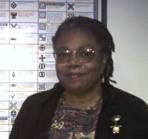 On May 20-21, 2016, the University of Memphis will host “Memories of a Massacre: Memphis in 1866, a Symposium Exploring Slavery, Emancipation, and Reconstruction.” The culmination of a semester-long series of lectures, workshops, discussions, and book talks, this symposium will feature historians and scholars from across the country, including Robert K. Sutton, Chief Historian of the National Park Service. Together, their presentations and the ensuing discussions will pry open what has for 150-years been the carefully concealed history of Reconstruction, its legacies, and the significant role that Memphis played in both. Please join us as we reflect collectively on a wave of terror that rocked a city and changed a nation.
On May 20-21, 2016, the University of Memphis will host “Memories of a Massacre: Memphis in 1866, a Symposium Exploring Slavery, Emancipation, and Reconstruction.” The culmination of a semester-long series of lectures, workshops, discussions, and book talks, this symposium will feature historians and scholars from across the country, including Robert K. Sutton, Chief Historian of the National Park Service. Together, their presentations and the ensuing discussions will pry open what has for 150-years been the carefully concealed history of Reconstruction, its legacies, and the significant role that Memphis played in both. Please join us as we reflect collectively on a wave of terror that rocked a city and changed a nation.
Below is the second of our six panels.
May 20, 2016
11:00am-1:45pm
 Joseph P. Reidy, Howard University, “Black Soldiers and Sailors: Rebuilding Families and the Nation amidst the Chaos of Civil War in the Mississippi Valley”
Joseph P. Reidy, Howard University, “Black Soldiers and Sailors: Rebuilding Families and the Nation amidst the Chaos of Civil War in the Mississippi Valley”
Bio:
Currently a Professor of history and an Associate Provost, Professor Reidy was Associate Dean of the Graduate School from 1998 through 2001. Professor Reidy has taught United States history,including courses on the Civil War and Reconstruction, the U. S. South, the U.S. since the Civil War, and race, ethnicity and gender in the modern U.S. His numerous publications include the book From Slavery to Agrarian Capitalism in the Cotton Plantation South: Central Georgia, 1800-1880 (Chapel Hill: The University of North Carolina Press, 1992). As the Editor and Acting Co-Director of the Freedmen and Southern Society Project at the University of Maryland, College Park (1977-1984) he helped produce a series of prize-winning, edited books of documents with introductions and annotations in cooperation with a team of scholars. Several volumes were produced over a number of years (1982-1998) and highlighted the actions of enslaved people, especially workers and soldiers, men and women, in the fight against slavery during the Civil War and after.
His other essays on the history of workers in the U. S. South have appeared in other collections and in the periodicals Agricultural History,Prologue: the Quarterly Journal of the National Archives and Records Administration, The Southern Review, Virginia Magazine of Biography and History,Slavery and Abolition, Southern Studies and Marxist Perspectives, and as chapters in other books. Professor Reidy also has served on the editorial board of the magazines Civil War History and The Filson Club Historical Quarterly. The National Endowment for the Humanities and the Confederate Memorial Literary Society, among others, have funded Professor Reidy’s work. He won the Thomas Jefferson Prize of the Society for History in the Federal Government three times, the Abraham Lincoln Prize of Gettysburg College, and the J. Franklin Jameson Outstanding Editorial Achievement Prize of the American Historical Association. His latest project is called “African American Sailors in the Civil War Navy,” and it aims to identify the names of the 18,000 or so men of African ancestry who served in that war and to interpret their service.
 Jim Downs, Connecticut College, “Dying to be Free: The Deadly Consequences of Emancipation” Twitter Handle: @jimdowns1
Jim Downs, Connecticut College, “Dying to be Free: The Deadly Consequences of Emancipation” Twitter Handle: @jimdowns1
Bio:
Jim Downs is currently an Andrew W. Mellon New Directions Fellow at Harvard University, where he is gaining training in medical anthropology. While at Harvard, Downs will also be a fellow at The Weatherhead Initiative on Global History.
Downs recently published Stand By Me: The Forgotten History of Gay Liberation (Basic Books, 2016). The book explains how the outbreak of HIV in the early 1980s caused many historians, journalists and others to portray the 1970s as a period of unfettered sex in order to explain the outbreak of HIV in the 1980s. As a result, we have a diluted picture of the 1970s. HIV changed how we narrated the history of the 1970s. Stand by Me corrects this misinterpretation by uncovering forgotten episodes from the decade.
In 2012, Downs published Sick from Freedom: African-American Illness and Suffering during the Civil War and Reconstruction (Oxford University Press, 2012), which tells the largely unknown story of how many former slaves died at the moment of freedom. Drawing on a number of unexamined records at the National Archives, Downs uncovers a smallpox epidemic that devastated newly freed slaves, and he also reveals how cholera, dysentery and yellow fever threatened the lives of emancipated slaves. Sick from Freedom has been featured in The New York Times, The Guardian, Daily Mail, the BBC, the Joe Madison Show, New Zealand National Public Radio, among others.
In 2011, Downs was a co-organizer for the conference Beyond Freedom: New Directions in the Study of Emancipation, which was sponsored by the Gilder Lehrman Center at Yale University. He is currently co-editor on a volume based on the conference proceedings. Professor Downs has presented his research at the American Association for the History of Medicine, the European Association for the History of Medicine and Health, the Southern Historical Association, the American Historical Association, and the Organization of American Historians. Downs was recently named a Distinguished Lecturer by the Organization of American Historians (April, 2014).
Downs has also published on the representations of slavery in museums and historic landmarks in the United States, England, and the Bahamas, as well as book chapters on the history of racial categories in the United States, the life of Harriet Jacobs and her daughter Louisa, and on sexuality in the antebellum South. He is currently working on two book projects: the first examines the international outbreak of the 19th century cholera epidemics and the second examines the history of sexuality, particularly the untold story of the Upstairs Lounge Fire in New Orleans.
Downs was a visiting fellow in the History of Science and the W.E.B DuBois Institute for African and African American Research at Harvard University in 2012. In 2011-12, Professor Downs was awarded a Margaret Sheridan Community Learning Award from the College’s Holleran Center for Community Action and Public Policy. In the summer and fall of 2010, he received the Mayers Fellowship from the Huntington Library in Pasadena, CA. In 2009, he was awarded a fellowship from the Gilder Lehrman Center at Yale University, an Andrew Mellon fellowship from the Massachusetts Historical Society and a summer institute fellowship from the National Endowment for the Humanities.
 John C. Rodrigue, Stonehill College, “From Emancipation to Abolition in Civil-War Tennessee”
John C. Rodrigue, Stonehill College, “From Emancipation to Abolition in Civil-War Tennessee”
Bio:
Prof. Rodrigue joined Stonehill’s faculty as the Lawrence and Theresa Salameno Professor in the fall of 2007. He taught at Louisiana State University from 1996 to 2007, and he was an editor on the Freedmen and Southern Society Project at the University of Maryland from 1992 to 1996. Prof. Rodrigue received his Ph.D. in 1993 from Emory University, working under the direction of Prof. James L. Roark.
His teaching and research interests focus on nineteenth-century United States history, specifically the Civil War and Reconstruction era, slavery and emancipation, the U.S. South, and African-American history.
Prof. Rodrigue has recently published Lincoln and Reconstruction, a volume in Southern Illinois University Press’s Concise Lincoln Library series. He is currently working on a study of the abolition of slavery in the lower Mississippi valley during the Civil War. He is also working on a long-term project on the southern planters after the war.
 Moderator: Femi I. Ajanaku, Director, Center for African & African American Studies,LeMoyne-Owen College Twitter Handle: @izegbe
Moderator: Femi I. Ajanaku, Director, Center for African & African American Studies,LeMoyne-Owen College Twitter Handle: @izegbe